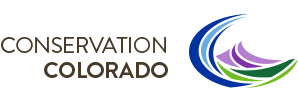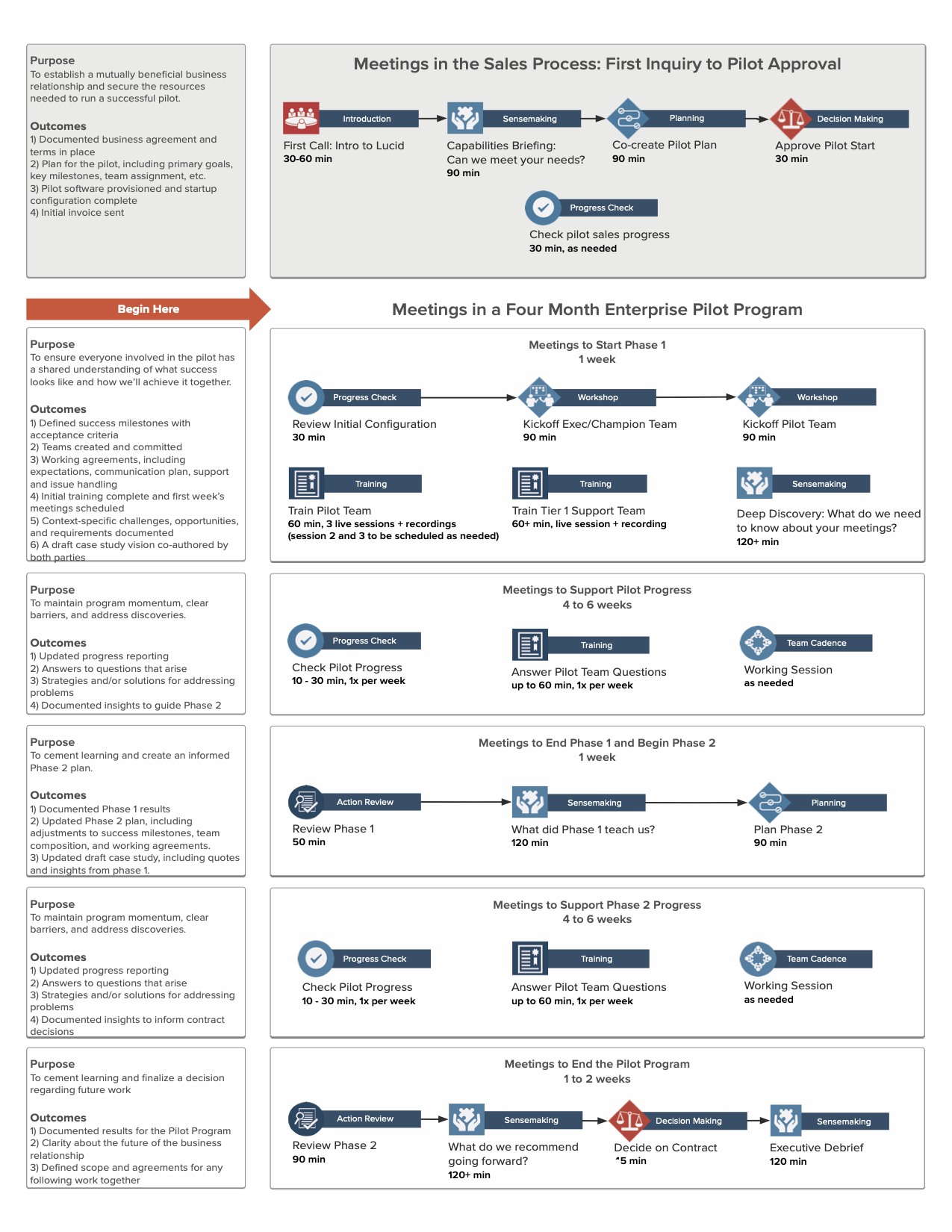Case Study: Conservation Colorado Eliminates Employees’ Top Complaint
Too much time wasted in unproductive meetings. Ineffective meetings plague companies around the globe, making this a top complaint for employees at every level.
Conservation Colorado engaged Lucid Meetings to help them improve their meeting performance, which had been consistently rated the number one problem in their annual employee feedback surveys.
I spoke with Nikki Riedt, Conservation Colorado’s Operation and Finance Director, at the end of our engagement together about their experience. I’m delighted to be able to share that feedback with you here.
Background
Conservation Colorado is an organization working to protect Colorado’s climate, air, land, water, and communities through organizing, advocacy, and elections.
The level of urgency and scrutiny surrounding climate change has skyrocketed. In response to this rapidly changing landscape, Conservation Colorado’s changed too. By the time they contacted Lucid, the executive team featured many leaders who were new to the organization within the past year, and the total number of employees was growing rapidly.
What wasn’t changing? The way they all felt about their meetings.
The Challenge
Fast-paced advocacy work requires an enormous amount of collaboration. The Conservation Colorado team coordinates their work with the community and allied organizations. They host workshops and educational events. They keep the press up to date with new developments, and interact frequently with local government.
Making sure all these moving pieces stay aligned and on track to advance their mission requires lots of internal communication, which means lots of meetings. As the team grew and new leaders came onboard, the number and length of these meetings grew too.
The leadership team had worked to improve meetings in the past.
“We had some one-off internal trainings focused on specific meeting skills, like facilitation or agenda building. They were fine, but not part of a broader improvement strategy.”
Nikki Riedt, Operation and Finance Director
They also discussed best practices in all-hands meetings and drafted a set of meeting rules that every leader was meant to follow.
And yet for the third year in a row, the overwhelming feedback from the employee satisfaction survey showed that the #1 concern was too much time wasted in unproductive meetings.
Beyond the frustration of chronic employee dissatisfaction with meetings, the leadership team faced an additional challenge. The organization recently worked hard to reconfirm their commitment to diversity and inclusion. Leaders worked with experts to learn what they could do to increase inclusion throughout the organization, and were told how important it is to encourage diverse participation in meetings.
This left Conservation Colorado wrestling to resolve seemingly contradictory mandates.
- Employees felt many meetings were a waste of time, keeping them from completing important work. Employees were asking for fewer, more efficient meetings.
- Diversity and inclusion efforts indicated they needed to encourage more engagement and participation, which seemed to suggest even more time spent in meetings.
Facing these complex challenges, Nikki Riedt reached out to see how we might help.
“Lucid stood out as one of the only companies I found that really focused on business meetings and they stood out because they moved beyond the basics of ‘good meetings have an agenda’ to focus more on meetings as a driver of organizational culture.”
The Approach: A Successful Meetings Quickstart
Conservation Colorado invited their entire staff to participate in the Successful Meetings Quickstart, Lucid’s program designed to walk teams through the process of designing and running effective everyday business meetings.
The program combines interactive workshops, online education, and regular mentorship calls to support a group’s meeting improvement efforts over the course of three months.
The Quickstart Journey
Before the program, everyone collects baseline data about their current meetings. This data helped team members better understand each other’s experiences and perspectives. It also revealed strong differences between the amounts of time and energy individual employees spent in meetings. Gathering current data allowed the team to come ready to work on solutions for the specific meeting problems they’d recently experienced, rather than hoping to improve meetings in general.
The Workshop
Conservation Colorado chose to host this as a full-day onsite workshop, which meant bringing in remote employees and pausing operations for the day – a big commitment.
“I think folks were skeptical that a meeting about meetings was going to help them be more productive. Before the workshop, we really focused on getting buy-in as this project was one way we were tackling the problems that the staff had been raising for the last couple of years around meetings.”
Nikki Riedt
During the workshop, Conservation Colorado employees worked together to create new meeting agreements, develop a shared understanding of what it takes to make meetings effective on an ongoing basis, identify target meetings to improve, and practice a variety of simple meeting techniques for increasing engagement.
“I like that we came up with actual solutions. I feel like many workshops talk at us for hours about tools, but we don’t get to apply what we learn and work through issues. By having time to apply techniques and work through problems, we came away with actionable steps.”
Conservation Colorado workshop feedback

Average participant rating: 5.1 out of 6
Implementation: Running Better Meetings Every Day
After the workshop, the Conservation Colorado team needed to put their ideas into practice.
They began by collecting anonymous meeting observations to test how well they were able to follow the new meeting agreements they’d created. Detailed reports came in for nearly 40 meetings in the week following the workshop, further highlighting specific actions they could take to improve.
They also enrolled in the self-paced online Essential Skills for Effective Meetings course, where they had access to detailed step-by-step instructions for leading better meetings.
“It has given me some very concrete ways to improve the meetings I run and improve who I am as a meeting attendee.”
“Using what I learned helps make meetings less stressful.”
participant feedback on the Essential Skills
The Lucid team reviewed the collected meeting observations and worked with the Conservation Colorado team to find solutions in live online Momentum calls held every two weeks.
In the first month following the workshop, the Momentum calls focused on helping Conservation Colorado team members gain confidence in their new skills. They asked questions, shared ideas, and refined their agreements.
“I have higher expectations now, both from my colleagues to provide more details about meetings I lead and for the meetings I attend. I also feel more accomplished when I know we all have agreement on the next steps after each meeting.”
participant feedback
In the second and third month, the team began designing Meeting Flow Models for different departments and program areas, outlining the exact meetings they needed to advance their work through each process.
“For me, a highlight was when we started thinking about meetings not just as meetings – where we worried about wasting time and being efficient–but meetings as culture. It was a real “aha moment” to see that our meetings were just more than simply meetings; they’re a critical way of how we operate which makes being intentional about them so important.
That and understanding meeting flows, and how we could do a bit of work to think through all of the meetings necessary to complete a project at the start, making it easier to prepare and making the work flow better.”
Nikki Riedt
During the final Momentum call, representatives from different groups presented their designs for feedback and celebration. Participants from every level of the organization offered ideas and support to the presenters based on what they’d learned throughout the program.
As the program leader on the Lucid Meetings side, I have to say that it was awesome to watch. This kind of peer mentorship and joint ownership for making meetings effective is what I’m looking for throughout the program.
As Conservation Colorado already knew, most efforts to improve meetings across an organization fail to make a lasting impact, because it’s not only a matter of knowing what to do – it’s about having the support needed to practice, improve, and turn that knowledge into healthy habits. It was great to see people who had started our journey complaining that most meetings were a waste of time now working together to design more rewarding, productive meetings they’d enjoy attending.
The Results
“I couldn’t be more thrilled with this program, both for our team and for me personally. It really has been work-changing.”
- Nikki Riedt
Before the program began, Conservation Colorado leadership felt that they’d consider the program a success if they reduced the overall time spent in meetings across the organization. By the end, while we had the data required to measure that time, it was no longer considered a critical success factor.
Instead, the leadership team identified these results.
- We have a committed set of meeting agreements that people are embracing, even if we aren’t yet 100% of the way there yet. As part of the program, we agreed to review and update these agreements regularly. We have our 9-month review coming up in a couple of weeks. I think that is well-timed because we have let them slip a bit due to shifts forced by the pandemic – though the commitment to purpose is still very strong and has been really helpful.
- One of our bigger teams really embraced a lot of the practices and radically re-conceptualized how their department meets.
- We’ve seen success in meetings with external partners. By focusing more on purpose and outcome (core skills taught in the program) and less on set agendas, we’re making those meetings more productive.
- Thinking about how information flows throughout the organization and how meetings are one piece of that has really opened up a lot of ways we can improve how we share information. We’re still mapping out what this could look like for us.
- We now have first draft Meeting Flow Models for new employee onboarding, internal cross-functional communications, and our advocacy campaigns. We rolled out the onboarding meeting flow and all signs indicate that it is a success. I’m learning about new things to include and different ways to tailor the conversations as I’ve been having them. Feedback from the folks who are going through the process has been very positive so far.
- Lucid helped us rethink our leadership team and all-staff meetings. We are close to rolling out additional changes that we believe could have a really positive impact for the staff.
Advice for Others Considering a Quickstart
We all learned a lot throughout the program. At Lucid, we’re constantly adjusting our approach to better ensure results for our clients.
Nikki also shared what she felt other leaders should know as they begin their Quickstart.
Leadership should actively participate.
Because Conservation Colorado initially thought of the program as a way to address an employee satisfaction problem, not everyone on the senior leadership felt they needed to be involved after the initial workshop.
“As in all big changes, this takes time and commitment from leadership. Setting expectations with leadership at the start – like participating in the bi-weekly calls – would have been useful as one way to show that.
In most organizations, senior leaders attend more meetings than anyone else and their behavior sets the tone. By actively participating in a program designed to change meeting behavior, leaders can better model and speed the transformation they seek in their teams.
Expect changes to more than just meetings.
“Be open to transformational change in addition to learning new skills for your toolbox, because embracing new thinking about meetings will have the largest impact.”
Meetings do not occur in a vacuum. Instead, they interact with and impact every part of your business (for good or ill). Improving meetings often triggers improvements in related processes and systems, which can have a strong positive impact on performance – if you let it.
Review and revise regularly.
“Check in on the changes. Incorporate feedback. You are creating something new here and everything should contribute in that.”
From the very start of the Quickstart, we work with clients to approach every meeting with curiosity and as an experiment. What opportunity does your next meeting offer? What can you try that will help everyone make the most of that opportunity?
Like any experiment, if you never check on your results, you’ll never know what worked.
That’s no longer Conservation Colorado’s problem. Their team no longer complains about “too much time wasted in meetings” in general. Instead, when they have a meeting problem they experiment, working together to make meetings more inclusive, more productive, more meaningful, and more successful every day.
To learn more about how we can help your teams run successful meetings every day, contact us.




